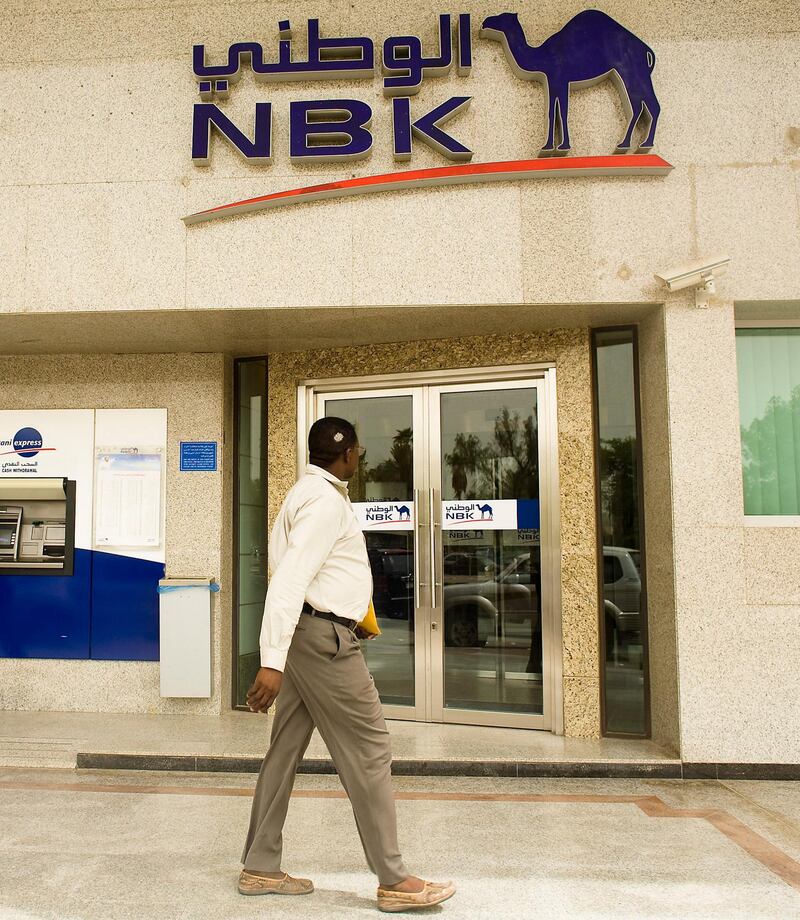The National Bank of Kuwait (NBK), the country's biggest publicly-traded lender, said its 2017 profit rose 9.2 per cent year on year, ahead of analyst forecasts, on the back of loan growth and rising fees income from government spending projects.
Net income attributable to bank sharholders for 2017 rose to 322.4 million Kuwaiti dinars (Dh3.9 billion) compared to 295.2m dinars in 2016, the lender said in a statement. Three analysts polled by Bloomberg forecast a median profit of 301.3m dinars.
NBK's board proposed a 30 fils per share cash dividend on 2017 profit as well as 5 free shares for every 100 held.
__________
Read More:
[ Kuwait's biggest lender plans major expansion in Saudi Arabia ]
__________
"Credit growth in Kuwait remains solid supported by positive economic activity as the government's capital spending program remains intact," said Naser Al Sayer, the bank's chairman.
"Kuwait's fiscal position is better than peers given the substantial buffers and strong sovereign ratings; creating room for acceleration in spending despite lower oil prices."
The bank's interest income in 2017 rose to 518.9m dinars compared to 475.6m dinars in 2016. Non-interest income increased to 193.7m dinars. The bank said it continues to benefit from its international operations in Egypt and the GCC.
"NBK's international operations remained highly profitable contributing to 28 per cent of the group's total profits," said Isam Al-Sager, the bank's chief executive officer.
"Our regional and international growth strategies continued to focus on Egypt and GCC countries while the improved synergies across other locations increases opportunities of cross selling and business optimization, which all supports more diversified assets, client base and income streams."





